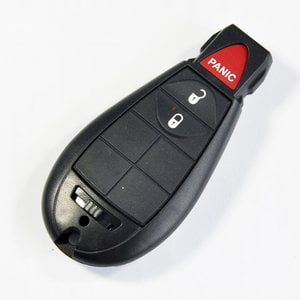As Phila-Locksmith has covered multiple times in the past, smart phones are becoming more ingrained in our everyday lives with each passing day. Whether it is simply the ever growing presence of social media, or the integration of home security there is no denying the keystone role that smart phones are playing in everyday life. Some automotive manufacturers have already begun integrating smart technology into their vehicles’ security systems. Some claim that this is the wave of the future, however; it may be sometime before this type of technology becomes common place. Not because of the cost associated with it, but because of limitations in functionality.
Auto Manufacturers Already Using Smart Phones
Despite the trepidation of many security experts, some automotive manufactures have already begun to integrate smart phones into their vehicles’ security. One of these manufacturers is Tesla. Tesla is an automotive manufacturer renowned for being on the cutting edge of technology. By downloading an application to their smart phone, a Tesla owner can complete functions such as starting the vehicle, unlocking doors and starting the air conditioning all from their smart phone. There is no doubt that this can be a useful function on a hot summer day, but there are still concerns which arise. Despite these concerns, in addition to Tesla; Volvo, General Motors and BMW also have a smart phone application which can be used to complete vehicle functions remotely.
Keyless Fobs Offer Greater Security
 Keyless fobs, like the Chevy model shown to the left, are the current standard barer for automotive security and convenience. A keyless fob allows for a vehicle owner to open and close their doors without having to remote the fob from their pocket. Additionally, the vehicle can be started without inserting a bladed key as long as the fob is located inside of the vehicle. Many vehicles equipped with a keyless fob can even be started remotely. This means that keyless fobs offer, just about, the same amount of convenience that a smart phone key would. However, there is a decreased security concern for keyless fobs. The first concern is the fact that smart phone battery life can greatly vary. If your cell phone dies and the vehicle owner uses their smart phone as the key, they will not be able to access the vehicle. Additionally, weak cellular service can cause delays of up to a few minutes when using remote functions. Volvo, one of the manufacturers to begin using cell phone applications, even has reservations about the usefulness of a cellular key. David Green, marketing director at Volvo, said that though useful in an emergency that cell phones as key are “not a viable way forward“. Mr. Green went on to cite both the battery and cellular connection issues which we mentioned above. Neither of these issues are a concern for keyless fobs. In addition to limiting drawbacks, keyless fobs offer greater security because of the transponder chip inside of the fob. In order for the vehicle to start, or the door to open, the fob must be properly programmed to the vehicle’s computer. This new security system is unique and not many locksmiths can replace these keyless fobs, let alone criminals. It seems that until smart phone applications can begin to offer benefits which a keyless fob does not, their implementation will be limited.
Keyless fobs, like the Chevy model shown to the left, are the current standard barer for automotive security and convenience. A keyless fob allows for a vehicle owner to open and close their doors without having to remote the fob from their pocket. Additionally, the vehicle can be started without inserting a bladed key as long as the fob is located inside of the vehicle. Many vehicles equipped with a keyless fob can even be started remotely. This means that keyless fobs offer, just about, the same amount of convenience that a smart phone key would. However, there is a decreased security concern for keyless fobs. The first concern is the fact that smart phone battery life can greatly vary. If your cell phone dies and the vehicle owner uses their smart phone as the key, they will not be able to access the vehicle. Additionally, weak cellular service can cause delays of up to a few minutes when using remote functions. Volvo, one of the manufacturers to begin using cell phone applications, even has reservations about the usefulness of a cellular key. David Green, marketing director at Volvo, said that though useful in an emergency that cell phones as key are “not a viable way forward“. Mr. Green went on to cite both the battery and cellular connection issues which we mentioned above. Neither of these issues are a concern for keyless fobs. In addition to limiting drawbacks, keyless fobs offer greater security because of the transponder chip inside of the fob. In order for the vehicle to start, or the door to open, the fob must be properly programmed to the vehicle’s computer. This new security system is unique and not many locksmiths can replace these keyless fobs, let alone criminals. It seems that until smart phone applications can begin to offer benefits which a keyless fob does not, their implementation will be limited.
Benefits for the Customer or Car Manufacturers?
With some many questions surrounding the use of smart phones as keys, and the comparable features offered by keyless fobs, it leaves one to wonder exactly why a car manufacturer would begin implementing this type of technology. While it is true that many people today prefer to complete as many processes as possible through their cellular device, there is also a big benefit to car manufacturers. If manufacturers are able to get their applications into customers’ smart phones it can open a large window of opportunity with regards to customer information. Targeted demographic information is more important than ever to companies, so car manufacturers want to use their smart phone applications to track location, preferences and much more. While this could allow for easy transition between two vehicles for consumers, the benefit is much larger for car makers. Vehicle manufacturers would be able to use the information about your preferences and locations to sell targeted ads from retailers and service providers. While some may find this convenient, many others could find it intrusive and a violation of personal privacy.
With many drawbacks to smart phone key applications, it will be increasingly interesting to see if auto manufacturers are going to find ways to overcome these drawbacks. It would certainly behoove auto manufacturers to find a way to use smart phone key applications because of the additional revenue source that it could provide. A key to the development of these application will be customer feedback. If customers find the ads which manufacturers will be able to sell intrusive, then it may not be feasible for car manufacturers to go in this direction. In the mean time, despite their own security concerns, keyless fobs will likely remain the top of the line product for automotive convenience and security.
